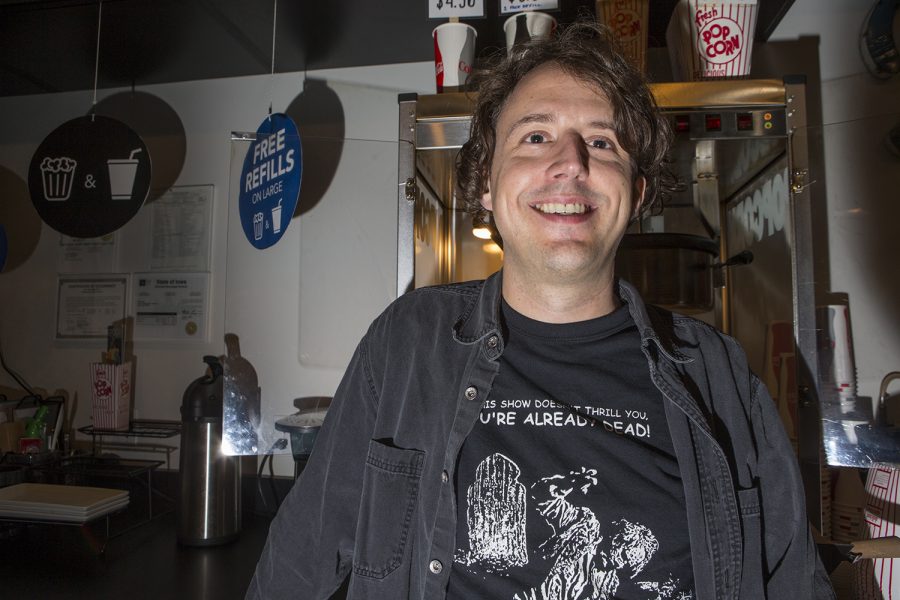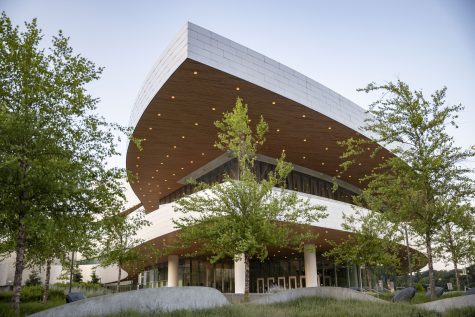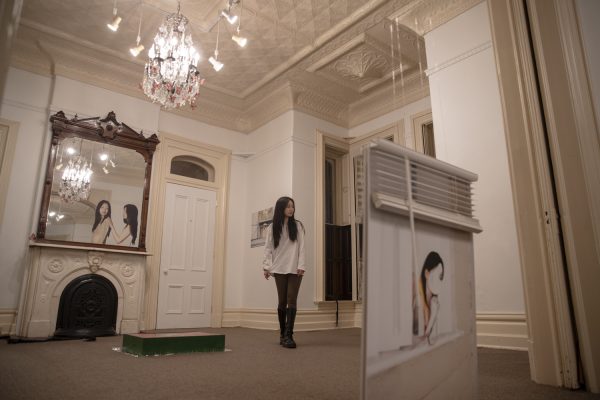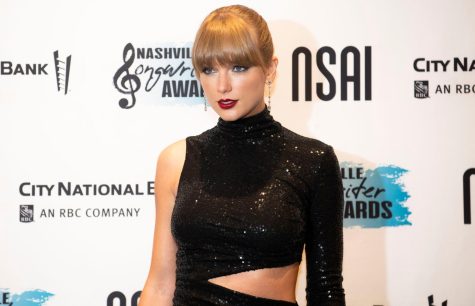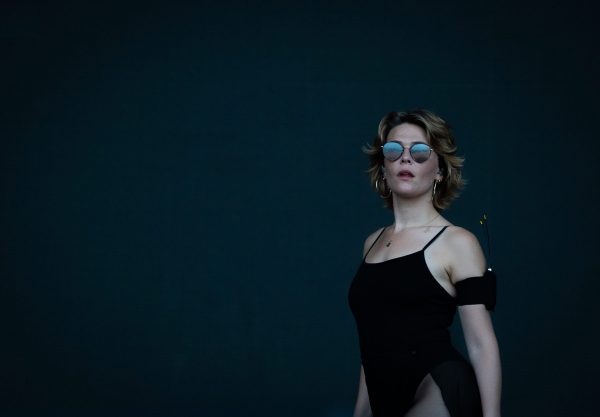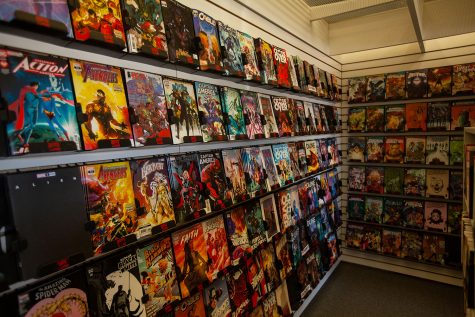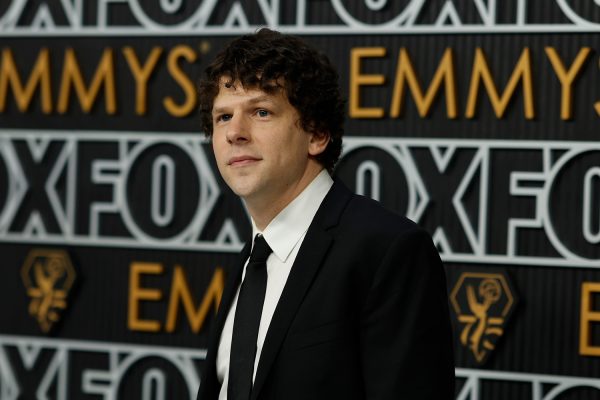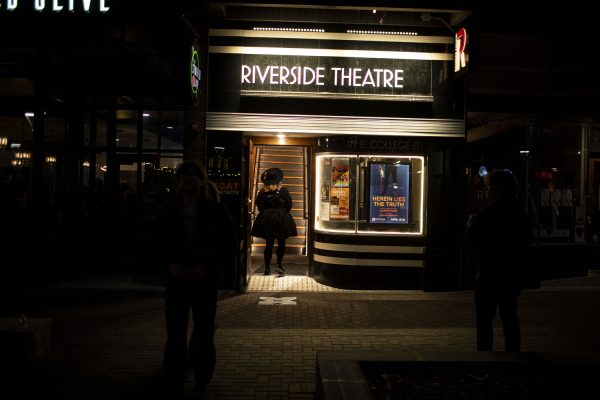The horror, the horror — why so popular?
Horror movies have been one of the most popular genres of film since movies became mainstream, but why is it becoming more and more popular among moviegoers?
Ross Meyer, Head Projectionist and Facilities Manager for FilmScene, poses for a portrait at Filmscene in Iowa City on Wednesday Oct. 10, 2018. FilmScene will be hosting a horrorathon on Friday from 8pm-8am during which they will show 6 films. (Katie Goodale/The Daily Iowan).
July 24, 2019
Chilling soundtracks, twisted camera angles, and amazing cast performances all contribute to a great horror movie. There are a lot of things that make horror an amazing film experience, but with recent films such as Midsommar and Us, there seems to be a newfound respect and love for the genre.
2017 was the biggest year for horror ticket sales in history, raking in $733 million according to Box Office Mojo. Now with this year’s horror films, such as Jordan Peele’s Us and It: Part 2, 2019 is set to be another historical benchmark in the horror box office. But why is that? Is there something about this generation that needs to be scared more than others?
“It’s that testing of yourself, of that ‘What’s the worst thing that can possibly happen?’ ” cinema Ph.D. candidate Hannah Bonner said. “Even if it’s outside reality, to experience that from a safe distance, to allow myself to be scared, but then I can turn it off at the end.”
Horror movies are built on tension. The tension can come from the situation, such as the snowed-in hotel in The Shining or the political climate in 2017’s Get Out. These tension-building situations create a narrative experience that many won’t soon forget.
Tales to scare aren’t new, and they aren’t tied to any one culture.
“Every culture has some form of horror. [That is why] ghosts exist in every culture; it’s tapping into something that is unconscious,” Associate Professor of cinema Corey Creekmur said. “The other kind of explanation is they are allegorical, they are tapping into real life like racism and sexism.”
These tales tell something that is deeper than crazy rampages on unsuspecting college kids. The ones that can stick with people long after the credits have rolled are the ones that strike something deeper in our psyche.
“I think the horror movies that really resonate with the public and have sustaining power are the ones that are more than the gore and the jump scares,” Bonner said. “What I find disturbing about that [The Exorcist] film isn’t the special effects so much as this medical practice that can’t figure out what is wrong with this young girl.”
RELATED: The art of the scream: How horror has impacted the cinema industry
Movies that cause the icy feeling of fear to crawl down the backs of the viewers don’t just scare them with a well-timed jump scares, they build a deeper feeling of discomfort and tension that won’t go away after a quick jump occurs.
“It’s easy to make people jump in a movie — play a loud sound or something really shocking, and they’ll jump,” Creekmur said. “But that’s cheaper and easier than suspense and buildup.”
The deep, rising tension can deeply affect viewers compared with the generic jump scare. The skin-crawling themes in horror movies are one aspect of the genre that can make it stand out from the rest, but the way filmmakers use horror as a metaphor or a backdrop to something so much bigger is unique to the style.
“You can use horror as a canvas to tell a horror story, and at the exact same time, you’re telling other stories,” FilmScene Grindhouse programmer Ross Meyer said. “Whether that’s a ‘spoonful of sugar makes the medicine go down,’ I don’t know. But you can’t always fit a really on-the-nose metaphor into all genres of film.”
Films such as Get Out and Jaws are both thrillers, but they say something deeper about our society. The films take something out of our realm of reality like a man-eating shark or a brain-swapping surgery and make them comment on something that is very much from our reality.
“There’s this step to the left in terms of what’s [possible] in reality, but it’s all taking place in a world that is recognizable to us,” Bonner said. “I feel like there is something really powerful about that.”
The way of showing a reflection of society through the lens of horror has been around for years, but maybe because of our current political and historical feeling of morality, the vehicle of escapism helps the most.
“So to have some form of escapism is crazy fun,” Meyer said. “There’s something interesting about a roomful of strangers in the dark together experiencing terror, then the relief that comes when the terror fades away.”



